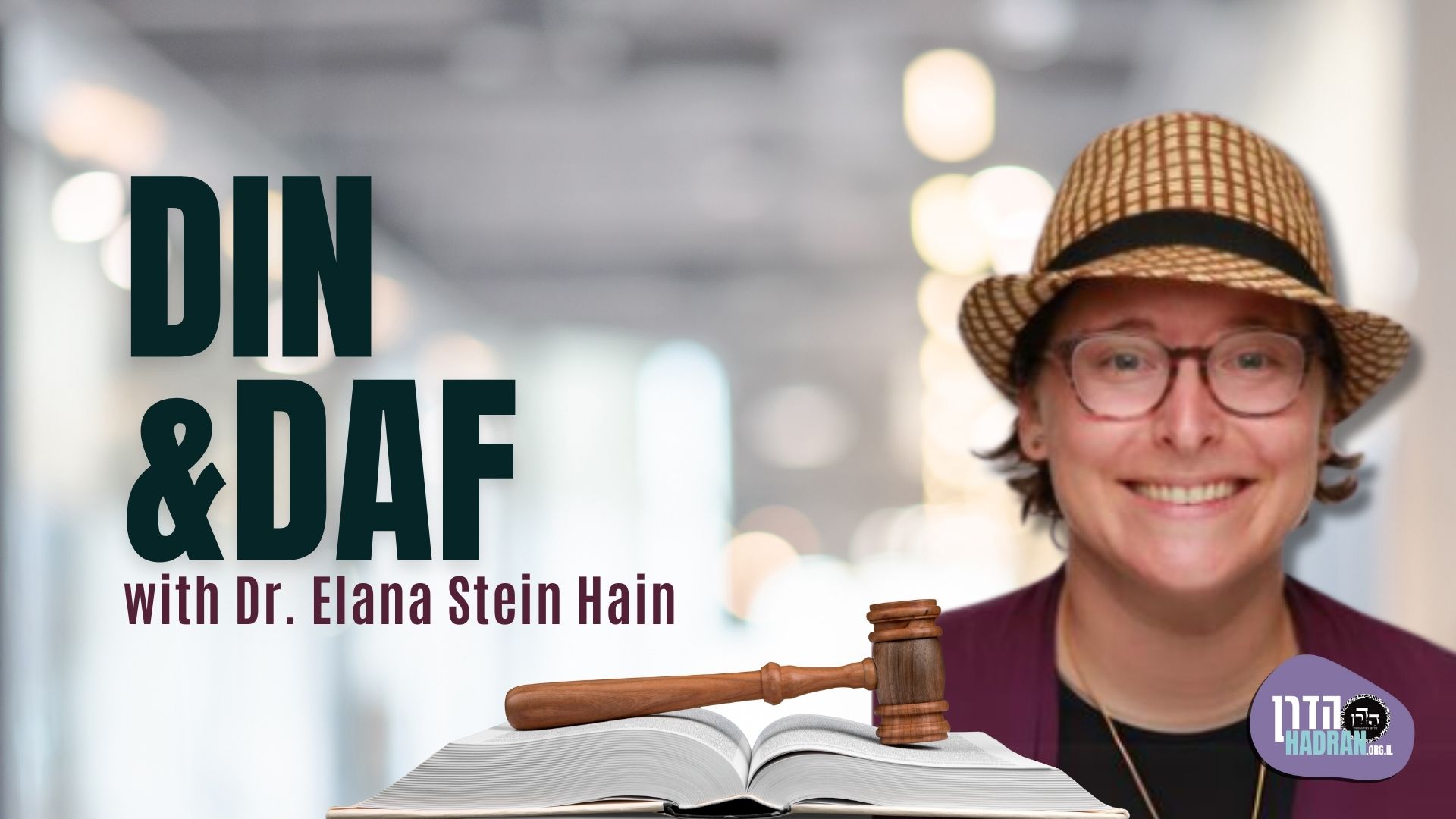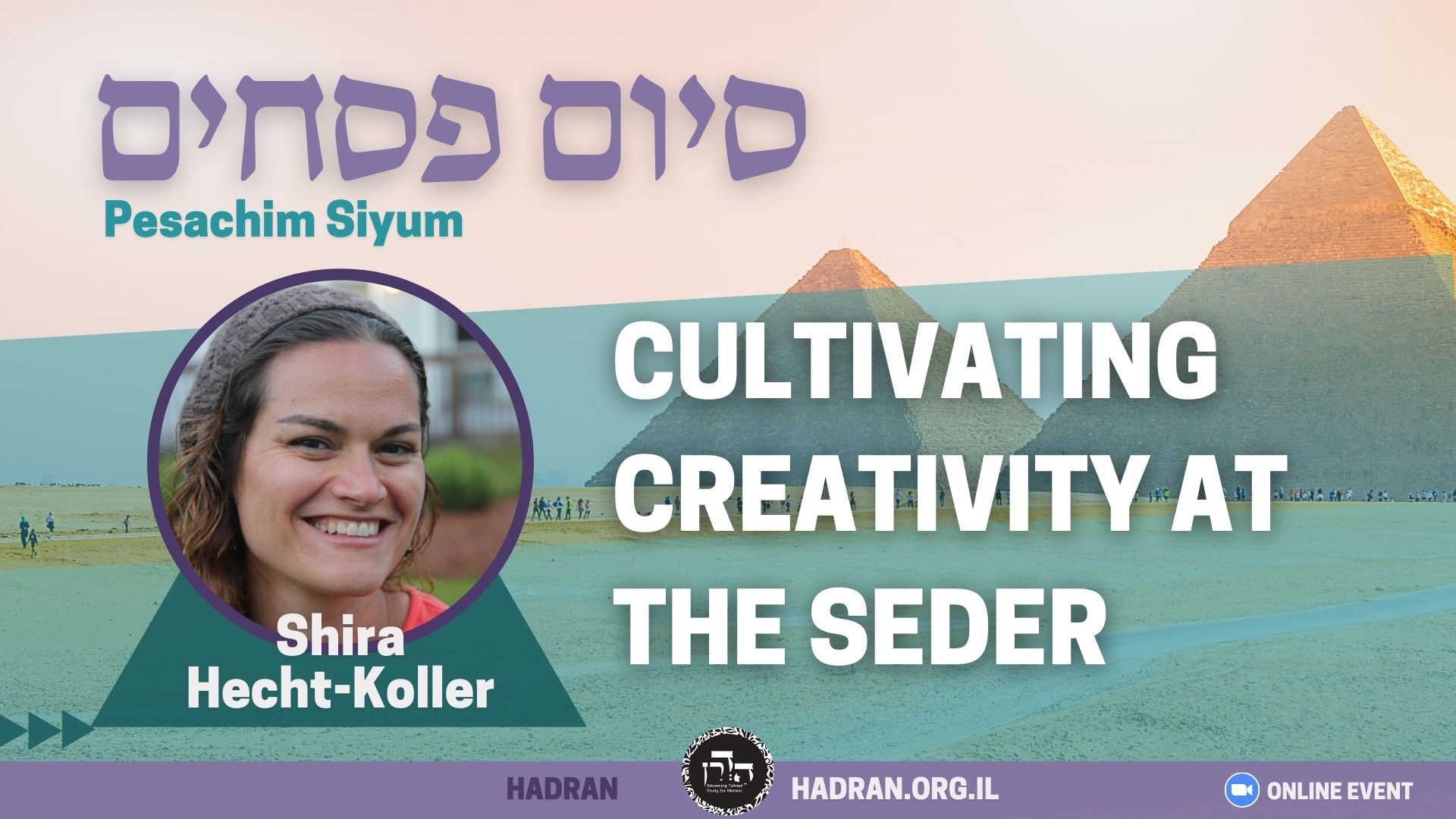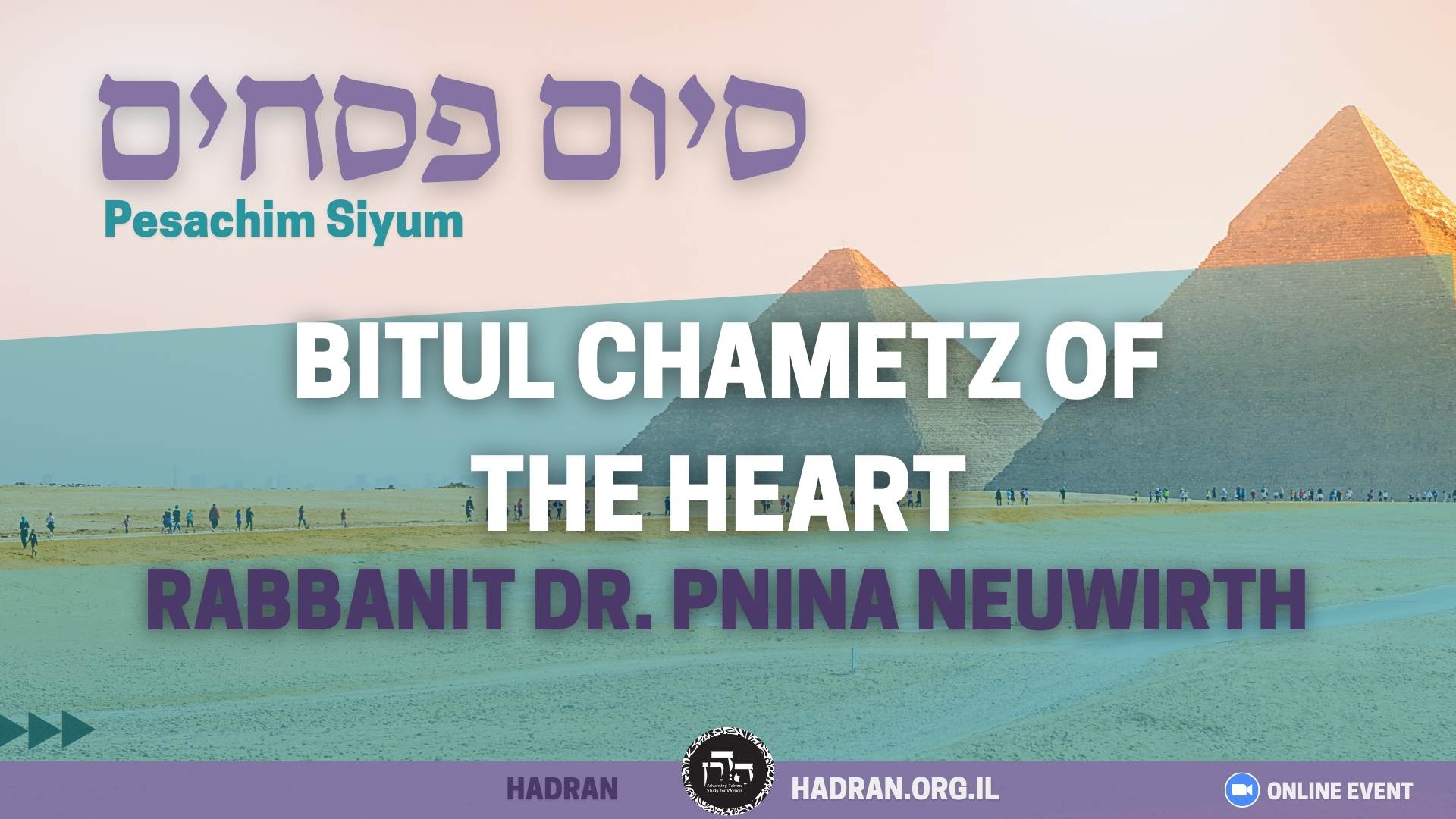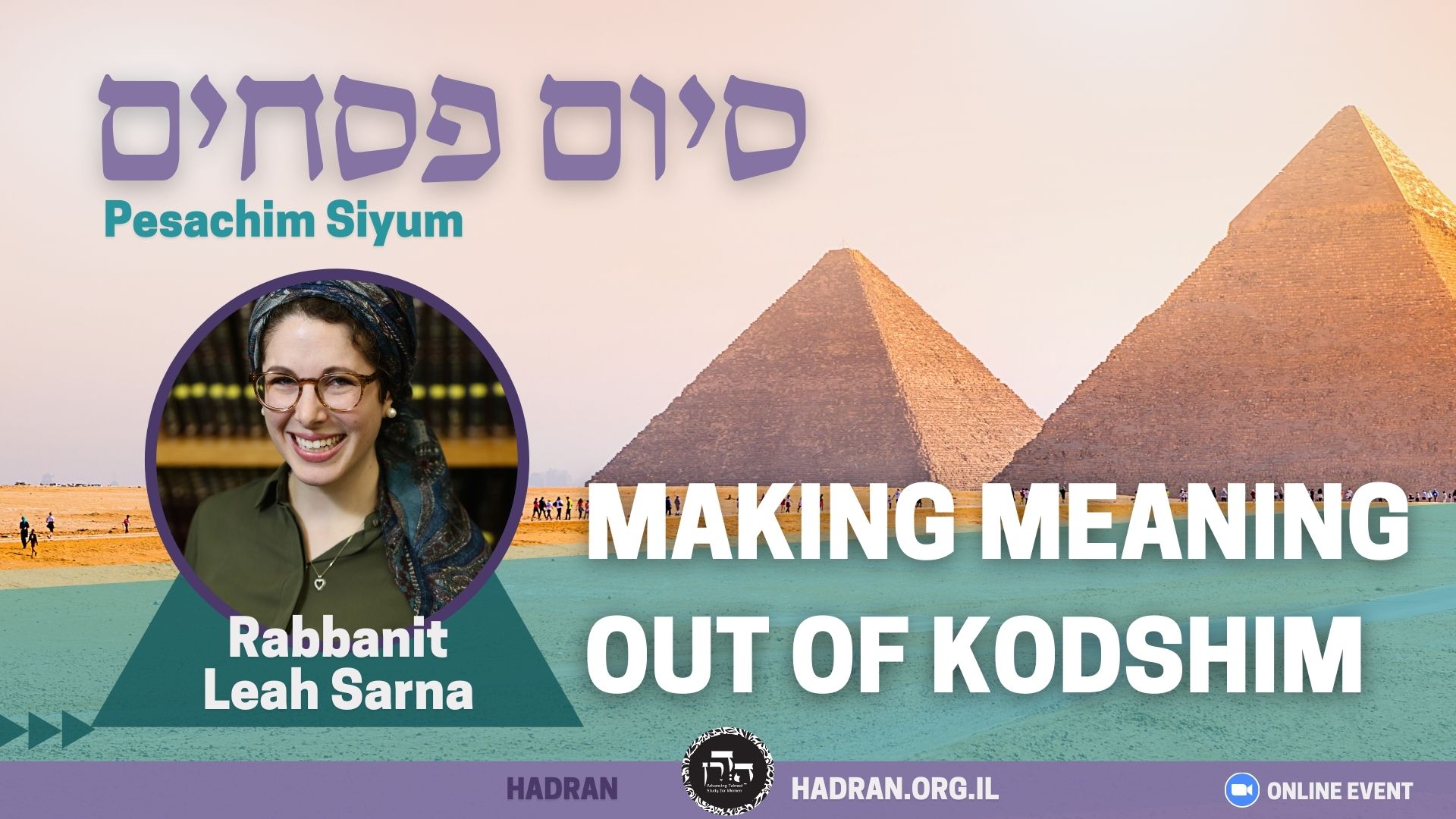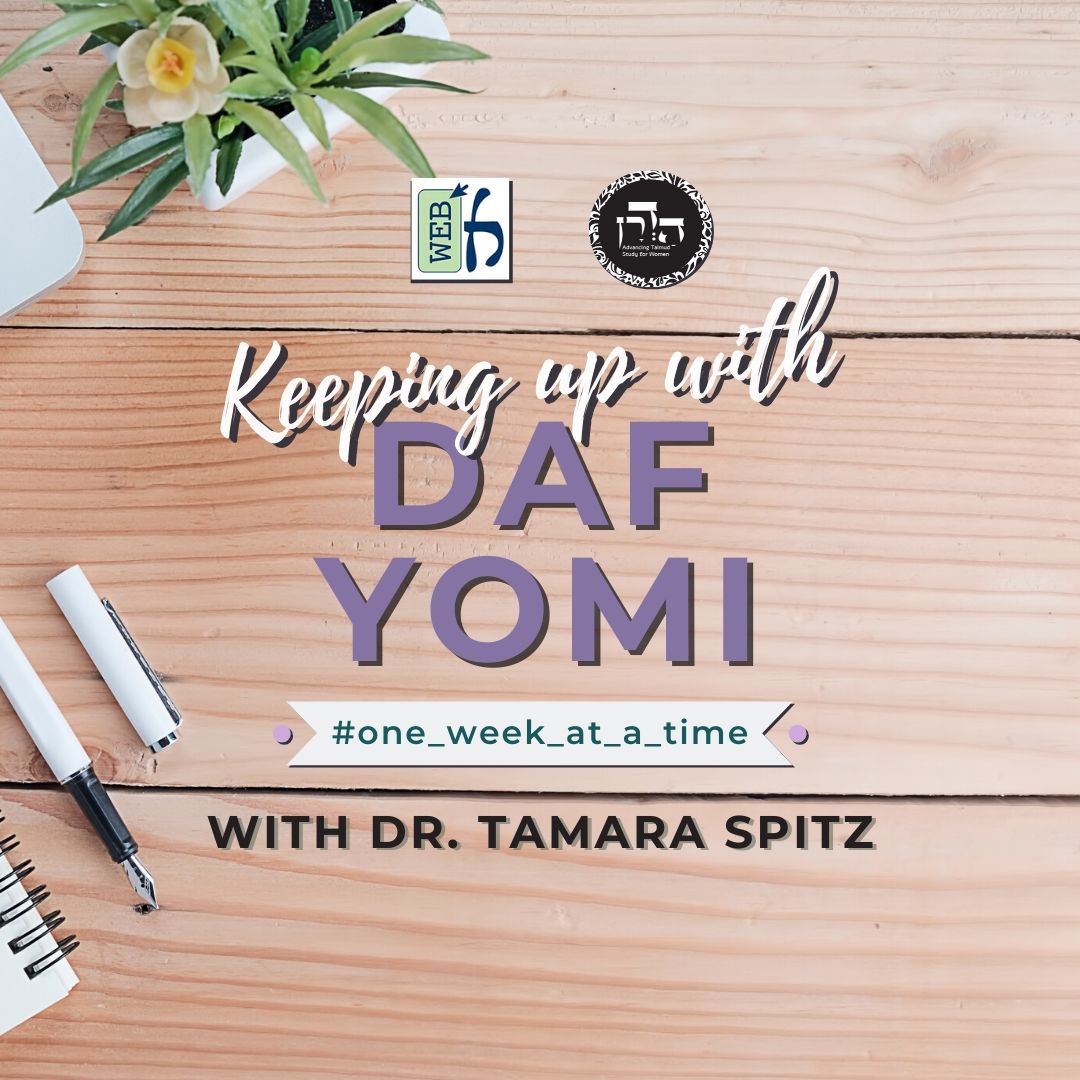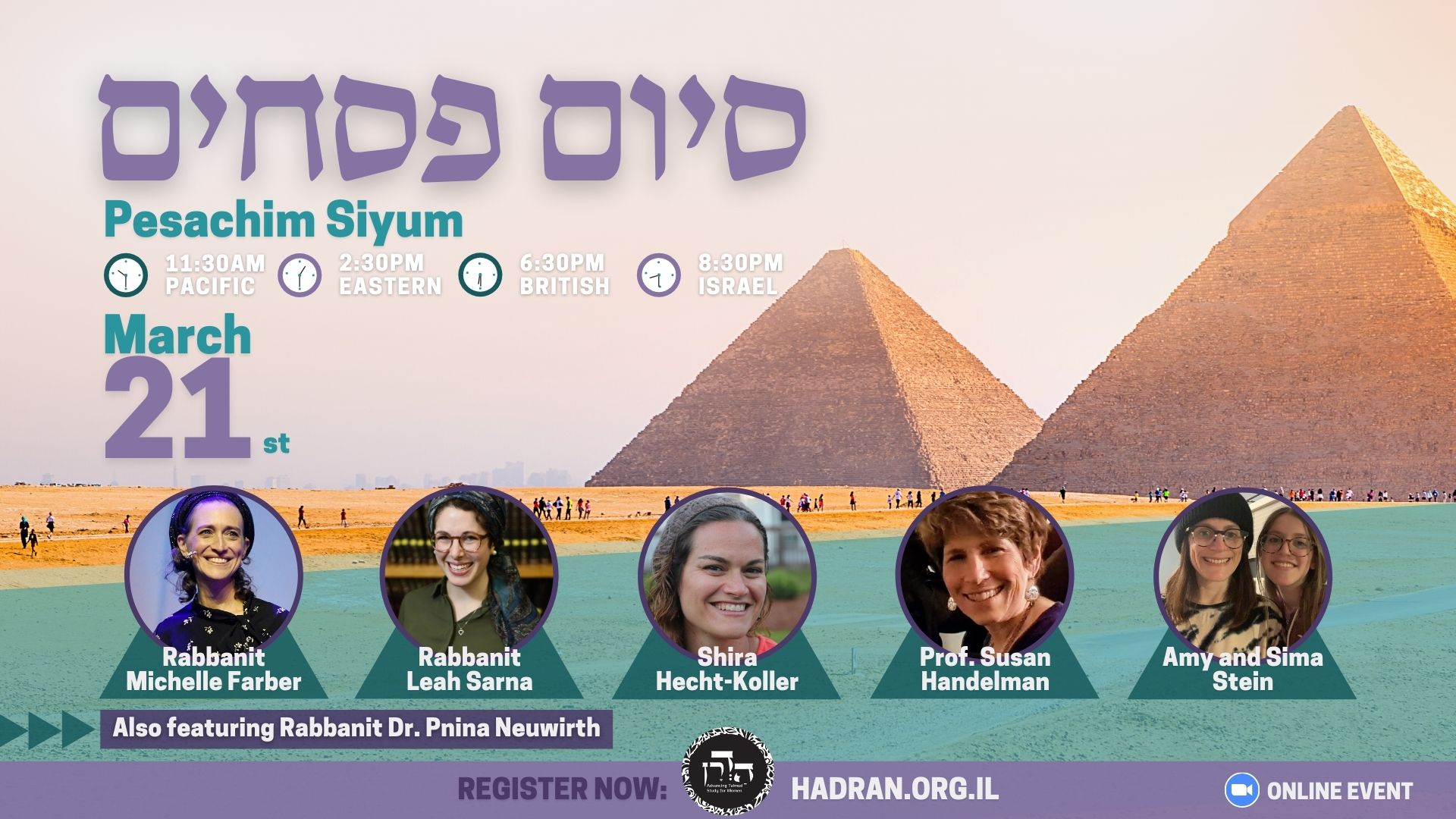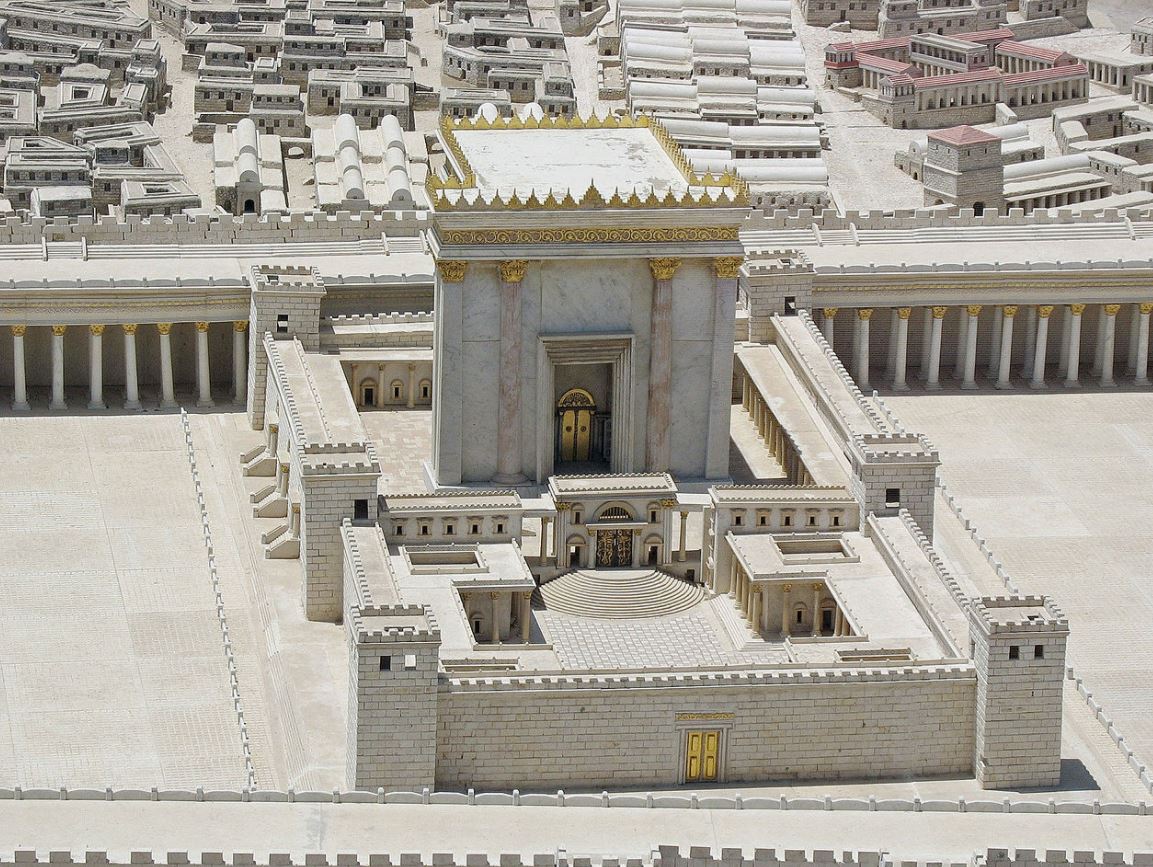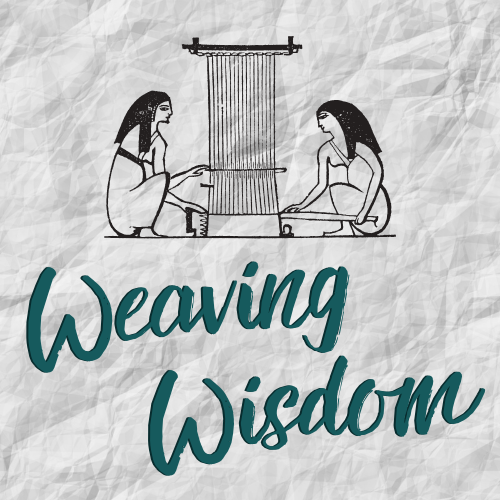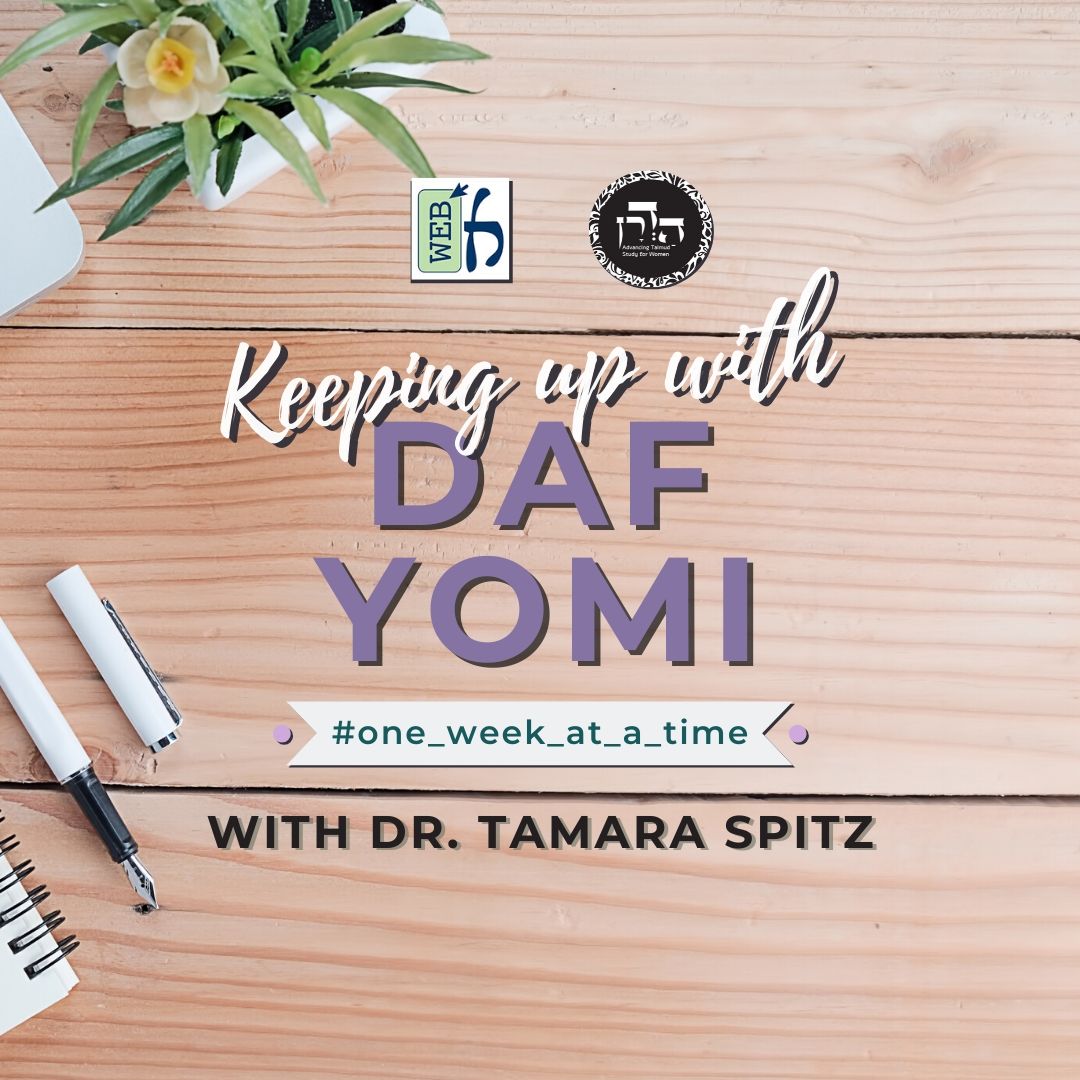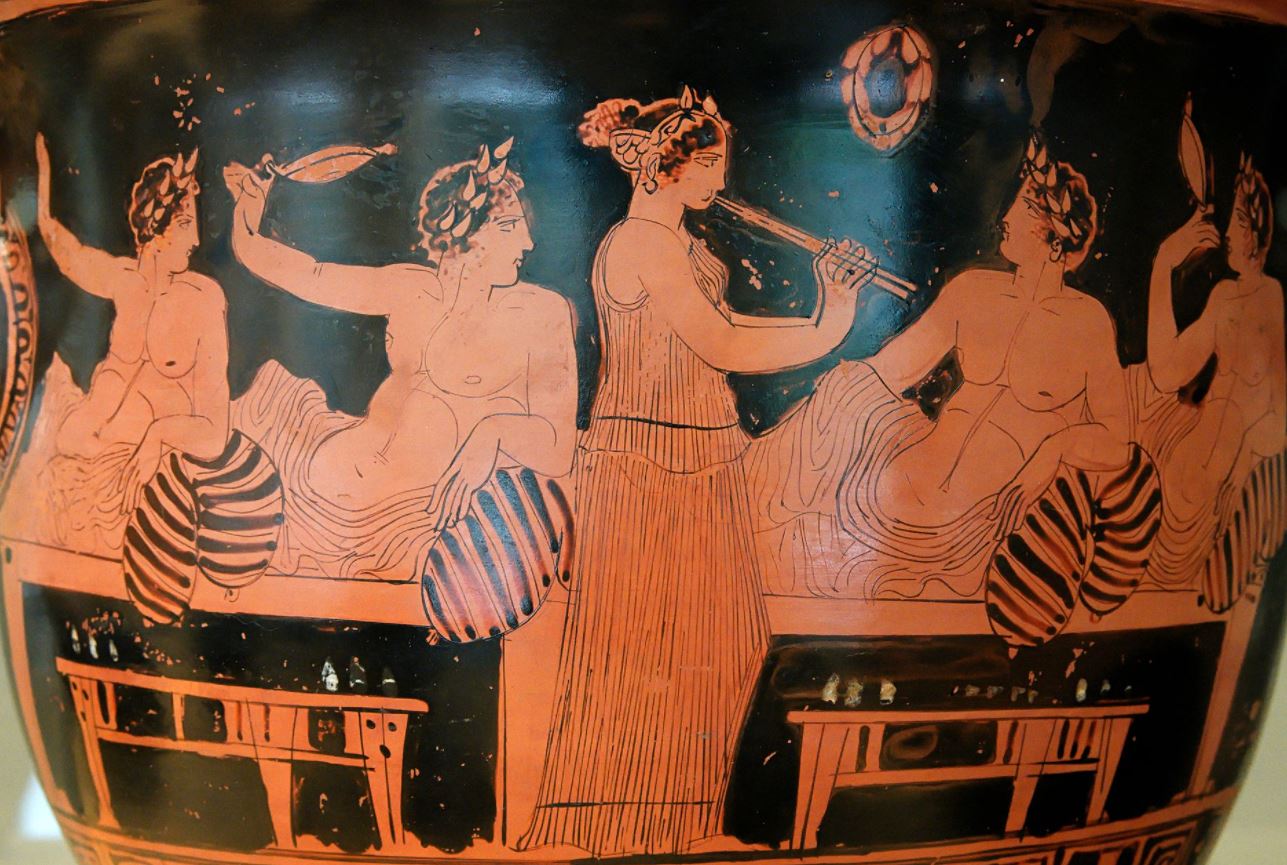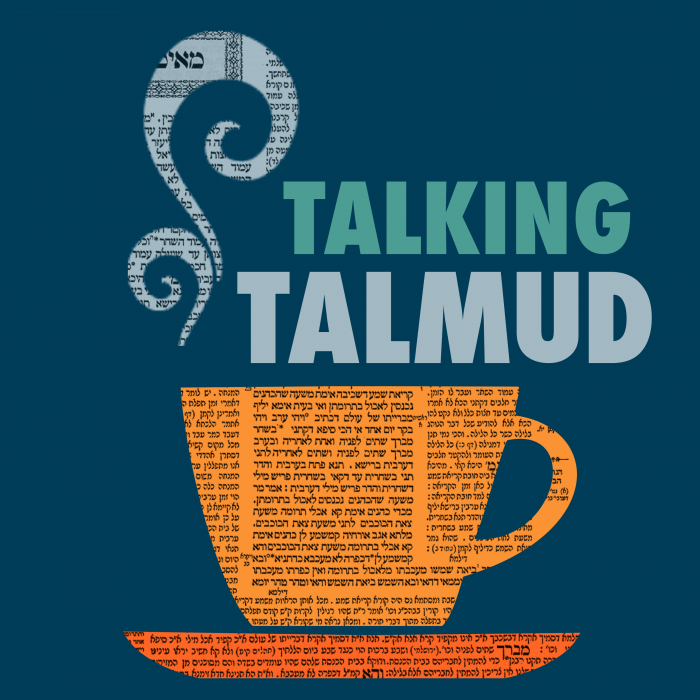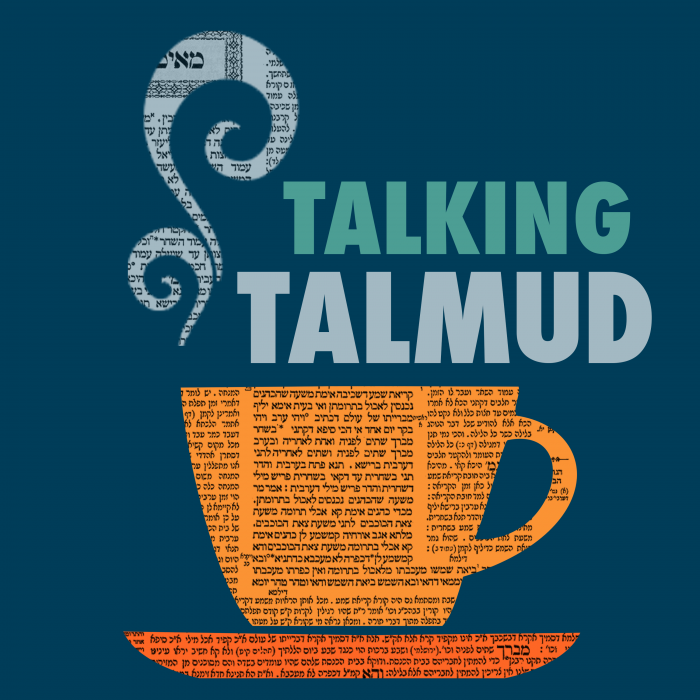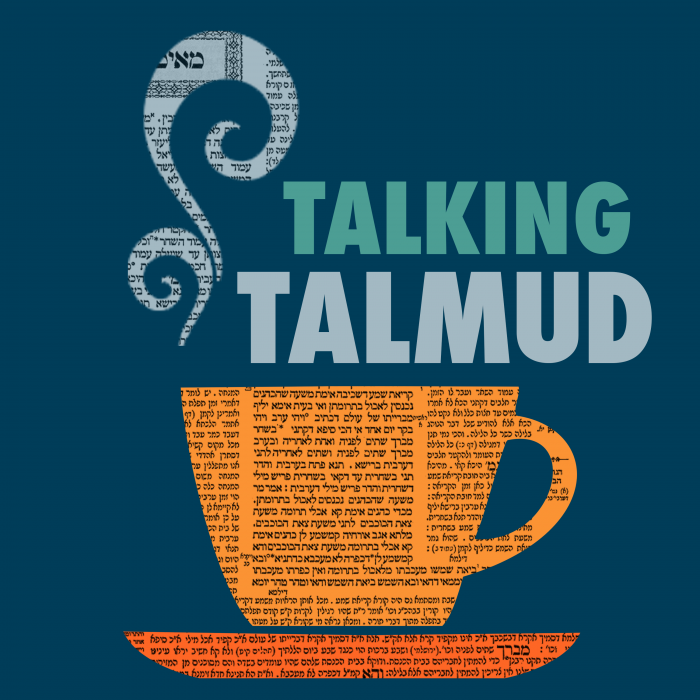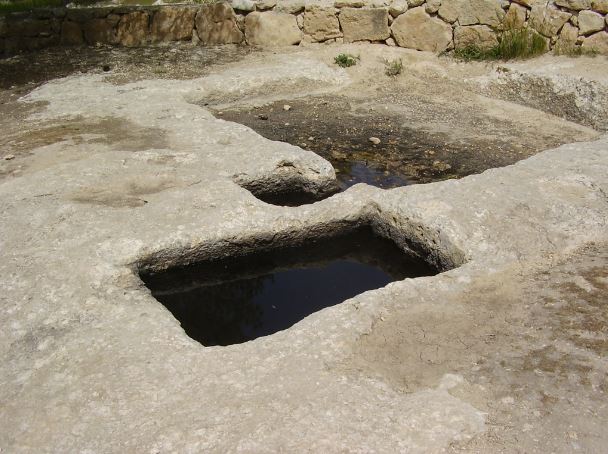Pesachim 79
וְאִיבָּעֵית אֵימָא, רַב דְּאָמַר כְּרַבִּי יְהוֹשֻׁעַ. דְּתַנְיָא, רַבִּי יְהוֹשֻׁעַ אוֹמֵר: כׇּל הַזְּבָחִים שֶׁבַּתּוֹרָה בֵּין שֶׁנִּטְמָא בָּשָׂר וְחֵלֶב קַיָּים, בֵּין שֶׁנִּטְמָא חֵלֶב וּבָשָׂר קַיָּים — זוֹרֵק אֶת הַדָּם.
And if you wish, say that Rav, who said that, according to the mishna, if one did sprinkle the blood it is accepted, holds in accordance with the opinion of Rabbi Yehoshua, that eating the Paschal lamb is not essential. As it was taught in a baraita that Rabbi Yehoshua says: With regard to all offerings in the Torah, whether the meat became ritually impure and the fat remains pure, or the fat became ritually impure and the meat remains pure, one may sprinkle the blood.
נָזִיר וְעוֹשֵׂה פֶסַח, נִטְמָא חֵלֶב וּבָשָׂר קַיָּים — זוֹרֵק אֶת הַדָּם. נִטְמָא בָּשָׂר וְחֵלֶב קַיָּים — אֵין זוֹרֵק אֶת הַדָּם, וְאִם זָרַק — הוּרְצָה.
With regard to the offerings of a nazirite and one who performs the ritual of a Paschal lamb, if the fat became impure and the meat remains pure, one may sprinkle the blood. If the meat became impure and the fat remains pure, one may not sprinkle the blood because eating the offering is a part of the mitzva itself and the impure meat may not be eaten. However, if he sprinkled the blood, it was accepted.
נִטְמְאוּ הַבְּעָלִים בְּמֵת — לֹא יִזְרוֹק, וְאִם זָרַק — לֹא הוּרְצָה.
If the owners became ritually impure from a corpse and therefore cannot eat the offering, one may not sprinkle the blood; and if one sprinkled it, it was not accepted. Although failure to eat the offering does not preclude it from being accepted, that rule applies only when the owner of the offering is personally fit to eat it.
בַּמּוּקְדָּשִׁין אֵינוֹ כֵּן וְכוּ׳. מַתְנִיתִין מַנִּי?
It was taught in the mishna: With regard to other offerings it is not so; even if the meat has become ritually impure, if the fat remains pure, the blood is sprinkled on the altar. The Gemara asks: Who is the tanna of the mishna?
רַבִּי יְהוֹשֻׁעַ הִיא. דְּתַנְיָא, רַבִּי יְהוֹשֻׁעַ אוֹמֵר: כׇּל הַזְּבָחִים שֶׁבַּתּוֹרָה שֶׁנִּשְׁתַּיֵּיר מֵהֶן כְּזַיִת בָּשָׂר אוֹ כְּזַיִת חֵלֶב — זוֹרֵק אֶת הַדָּם. כַּחֲצִי זַיִת בָּשָׂר וְכַחֲצִי זַיִת חֵלֶב — אֵין זוֹרֵק אֶת הַדָּם.
The Gemara answers: It is Rabbi Yehoshua. As it was taught in a baraita that Rabbi Yehoshua says: With regard to all the offerings in the Torah from which there remains an olive-bulk of meat that is fit to be eaten or an olive-bulk of fat that is fit to be sacrificed on the altar, one may sprinkle the blood. If all that remains is half an olive-bulk of meat and half an olive-bulk of fat, one may not sprinkle the blood. The fat is burned on the altar and the meat is eaten by the priests. Since the meat and fat serve different functions, they do not combine to equal the minimum amount that must remain in order to sprinkle the blood.
וּבָעוֹלָה, אֲפִילּוּ כַּחֲצִי זַיִת בָּשָׂר וְכַחֲצִי זַיִת חֵלֶב — זוֹרֵק אֶת הַדָּם, מִפְּנֵי שֶׁכּוּלָּהּ כָּלִיל. וּבַמִּנְחָה, אַף עַל פִּי שֶׁכּוּלָּהּ קַיֶּימֶת — לֹא יִזְרוֹק.
And with regard to a burnt-offering, even if all that was left was half an olive-bulk of meat and half an olive-bulk of fat, one may sprinkle the blood because it is all consumed on the altar. Since both the meat and the fat are sacrificed on the altar, they can be combined. And with regard to a meal-offering, although all of it remains pure, one may not sprinkle the blood of the animal offering that is brought together with it.
מִנְחָה מַאי עֲבִידְתֵּהּ? אָמַר רַב פָּפָּא: מִנְחַת נְסָכִים. סָלְקָא דַּעְתָּךְ אָמֵינָא, כֵּיוָן דְּקָא אָתְיָא מִכֹּחַ זֶבַח — כְּגוּפֵיהּ דְּזֶבַח דָּמֵי. קָא מַשְׁמַע לַן.
The Gemara expresses surprise: What is the mention of a meal-offering doing here? The discussion is about sprinkling blood, which is not relevant in the case of a meal-offering. Rav Pappa said: The meal-offering under discussion is the meal-offering brought with the libations that accompany animal offerings. It could enter your mind to say: Since it comes due to the offering, it is comparable to the offering itself. One might think that even if the offering became impure but the meal-offering remained pure, one would be permitted to sprinkle the blood of the animal due to the remaining meal-offering. Consequently, it teaches us that this is not the case.
חֵלֶב מְנָא לַן? אָמַר רַבִּי יוֹחָנָן מִשּׁוּם רַבִּי יִשְׁמָעֵאל, וּמָטוּ בַּהּ מִשּׁוּם רַבִּי יְהוֹשֻׁעַ בֶּן חֲנַנְיָה, דְּאָמַר קְרָא: ״וְהִקְטִיר הַחֵלֶב לְרֵיחַ נִיחֹחַ לַה׳״, חֵלֶב — אַף עַל פִּי שֶׁאֵין בָּשָׂר.
From where do we derive that if only the fat remains, one may sprinkle the blood of the offering? Rabbi Yoḥanan said in the name of Rabbi Yishmael, and there are those who determined that this halakha was stated in the name of Rabbi Yehoshua ben Ḥananya: As the verse states: “And the priest shall sprinkle the blood upon the altar of the Lord at the entrance to the Tent of Meeting; and he shall make the fat smoke for a satisfying aroma to the Lord” (Leviticus 17:6). This verse indicates that one may sprinkle the blood if the fat remains pure although there is no pure meat.
אַשְׁכְּחַן חֵלֶב. יוֹתֶרֶת הַכָּבֵד וּשְׁתֵּי כְלָיוֹת, מְנָא לַן?
The Gemara asks: We have found a source for the halakha that one may sprinkle the blood if only fat remains; but if all that is left is the diaphragm and the two kidneys, which are also sacrificed on the altar, from where do we derive that one may sprinkle the blood?
הֵיכָא אָמְרִינַן דְּזָרְקִינַן? מִדְּקָתָנֵי: וּבַמִּנְחָה אַף עַל פִּי שֶׁכּוּלָּהּ קַיֶּימֶת — לֹא יִזְרוֹק. מִנְחָה הוּא דְּלָא, אֲבָל יוֹתֶרֶת הַכָּבֵד וּשְׁתֵּי הַכְּלָיוֹת — שַׁפִּיר דָּמֵי, מְנָא לַן?
The Gemara responds: Where did we say that one may sprinkle the blood in such a case? The Gemara answers: The fact that one may sprinkle the blood in that case is clear from the fact that it is taught at the end of the baraita: And with regard to a meal-offering, although all of it remains pure, one may not sprinkle the blood. It can be deduced from this statement that it is a meal-offering for which one may not sprinkle the blood, as the meal-offering is not part of the animal; but with regard to the diaphragm and the two kidneys, it seems well to sprinkle the blood if they remain. That being the case, from where do we derive this halakha?
רַבִּי יוֹחָנָן דִּידֵיהּ אָמַר, אָמַר קְרָא: ״לְרֵיחַ נִיחֹחַ״ — כֹּל שֶׁאַתָּה מַעֲלֶה לְרֵיחַ נִיחוֹחַ.
The Gemara answers: Rabbi Yoḥanan himself said, this time without quoting tanna’im: The verse we quoted above states: For a satisfying aroma, which indicates that anything you raise as a satisfying aroma, i.e., anything burned on the altar, is enough to sprinkle the blood.
וְאִיצְטְרִיךְ לְמִכְתַּב חֵלֶב וְאִיצְטְרִיךְ לְמִכְתַּב ״רֵיחַ נִיחוֹחַ״, דְּאִי כְּתַב רַחֲמָנָא חֵלֶב, הֲוָה אָמֵינָא: חֵלֶב — אִין, יוֹתֶרֶת הַכָּבֵד וּשְׁתֵּי הַכְּלָיוֹת — לָא, כְּתַב רַחֲמָנָא: ״לְרֵיחַ נִיחוֹחַ״. וְאִי כְּתַב רַחֲמָנָא: ״לְרֵיחַ נִיחוֹחַ״, הָוֵה אָמֵינָא: כׇּל הָעוֹלִין לְרֵיחַ נִיחוֹחַ, וַאֲפִילּוּ מִנְחָה, כְּתַב רַחֲמָנָא חֵלֶב.
The Gemara notes: And it is necessary to write fat in that verse and it is necessary to write: For a satisfying aroma. As, if the Merciful One had written only fat, I would have said that if fat remains, yes, the blood may be sprinkled, but if only the diaphragm and two kidneys remain, which are not as significant as the fat, no, the blood may not be sprinkled. Therefore, the Merciful One writes: For a satisfying aroma. And if the Merciful One had written only: For a satisfying aroma, I would have said that it includes anything that rises as a satisfying aroma, and even a meal-offering is included. Therefore, the Merciful One writes fat, to teach that this halakha applies only to sacrificial parts of the animal and not to accompanying libations and meal-offerings.
מַתְנִי׳ נִטְמָא קָהָל אוֹ רוּבּוֹ, אוֹ שֶׁהָיוּ הַכֹּהֲנִים טְמֵאִים וְהַקָּהָל טְהוֹרִים — יַעֲשׂוּ בְּטוּמְאָה. נִטְמָא מִיעוּט הַקָּהָל — הַטְּהוֹרִין עוֹשִׂין אֶת הָרִאשׁוֹן, וְהַטְּמֵאִין עוֹשִׂין אֶת הַשֵּׁנִי.
MISHNA: If the entire community or most of it became ritually impure, or the priests were all impure and the community was pure, they should perform the ritual of the Paschal lamb in ritual impurity. If a minority of the community became impure, even if they are many people, those who are pure perform the ritual of the Paschal lamb on the first Pesaḥ, and those who are impure perform the ritual on the second Pesaḥ.
גְּמָ׳ תָּנוּ רַבָּנַן: הֲרֵי שֶׁהָיוּ יִשְׂרָאֵל טְמֵאִין וְכֹהֲנִים וּכְלֵי שָׁרֵת טְהוֹרִין, אוֹ שֶׁהָיוּ יִשְׂרָאֵל טְהוֹרִין וְכֹהֲנִים וּכְלֵי שָׁרֵת טְמֵאִין, וַאֲפִילּוּ יִשְׂרָאֵל וְכֹהֲנִים טְהוֹרִין וּכְלֵי שָׁרֵת טְמֵאִין — יַעֲשׂוּ בְּטוּמְאָה, שֶׁאֵין קׇרְבַּן צִיבּוּר חָלוּק.
GEMARA: The Sages taught: If most or all of the Jewish people were impure and the priests and sacred vessels used in the Temple service were pure; or, conversely, if the Jewish people were pure and the priests and sacred vessels were impure; and even in a situation in which the Jewish people and the priests were pure and the sacred vessels were impure, they may perform any part of the ritual of the Paschal lamb in ritual impurity. The reason for this is that a communal offering, which is sacrificed even in a state of ritual impurity, is not divided. Therefore, since some of the service must be performed in a state of ritual impurity, it may all be performed in a state of ritual impurity.
אָמַר רַב חִסְדָּא: לֹא שָׁנוּ אֶלָּא שֶׁנִּטְמָא הַסַּכִּין בִּטְמֵא מֵת, דְּרַחֲמָנָא אָמַר: ״בַּחֲלַל חֶרֶב״, חֶרֶב הֲרֵי הוּא כֶּחָלָל,
Rav Ḥisda said: They taught that the service may be done in a state of ritual impurity if the sacred vessels are impure only in a case where the knife to be used for slaughtering became impure through contact with one who was ritually impure due to contact with a corpse, as the Merciful One states: “And whoever shall touch on the open field one slain with a sword, or one that died, or the bone of a man, or a grave, shall be impure for seven days” (Numbers 19:16). The Sages expounded: A sword is like a corpse. Therefore, a sword or another metal implement that touches a corpse attains the same level of impurity as the corpse itself, which is the ultimate primary source of ritual impurity. Similarly, a knife that touches a person who is a primary source of ritual impurity due to contact with a corpse attains that same status.
וְקָא מְטַמֵּא לְגַבְרָא, דְּמֵעִיקָּרָא כִּי מִיתְעֲבִיד — בְּטוּמְאַת הַגּוּף דְּכָרֵת קָא מִיתְעֲבִיד.
Therefore, it renders impure the person who uses it for slaughtering. In this case, when the ritual of the Paschal lamb is initially performed, it is performed in a state of ritual impurity of the body. Generally, one who is impure in this way is liable to receive karet if he eats sacrificial meat or enters the Temple.
אֲבָל נִטְמָא הַסַּכִּין בְּטוּמְאַת שֶׁרֶץ, דְּבָשָׂר הוּא דִּמְטַמְּיָא לֵיהּ, לְגַבְרָא לָא מְטַמְּיָא לֵיהּ. טְהוֹרִין — עָבֵיד, טְמֵאִין — לָא עָבֵיד, מוּטָב יֵאָכֵל בְּטוּמְאַת בָּשָׂר בְּלָאו, וְאַל יֵאָכֵל בָּשָׂר בְּטוּמְאַת הַגּוּף שֶׁהוּא בְּכָרֵת.
However, if the knife became ritually impure with the impurity of a creeping animal, which renders the meat impure but does not render the person impure, because something rendered impure by a primary source of ritual impurity becomes a secondary source of ritual impurity, which can render food impure but not people, those who are pure may perform the ritual of the Paschal lamb, but those who are impure may not perform the ritual. This is because it is preferable that one eat the Paschal lamb with impurity of the meat, as the nature of its prohibition is that of a regular negative commandment, and one should not eat the meat with impurity of the body, which renders one liable to receive karet.
אַלְמָא קָסָבַר רַב חִסְדָּא: טוּמְאָה דְּחוּיָה הִיא בְּצִיבּוּר. וְכֵן אָמַר רַבִּי יִצְחָק: טוּמְאָה דְּחוּיָה הִיא בְּצִיבּוּר.
The Gemara comments on Rav Ḥisda’s attempt to distinguish between different types of impurity and to claim that the entire community sacrifices the Paschal lamb in a state of ritual impurity only when the people have become impure with a severe form of impurity. Apparently, Rav Ḥisda holds that impurity is overridden in cases involving the public. The prohibition of sacrificing offerings in a state of impurity is not wholly permitted for a community; rather, it is overridden in cases of great need. Therefore, whenever it is possible to minimize the severity of the impurity, it is necessary to do so. And, so too, Rabbi Yitzḥak said explicitly: Impurity is overridden in cases involving the public.
וְרָבָא אָמַר: אֲפִילּוּ טְמֵאִין נָמֵי עָבְדִי. מַאי טַעְמָא, דִּכְתִיב: ״וְהַבָּשָׂר אֲשֶׁר יִגַּע בְּכׇל טָמֵא לֹא יֵאָכֵל בָּאֵשׁ יִשָּׂרֵף וְהַבָּשָׂר כׇּל טָהוֹר יֹאכַל בָּשָׂר״.
And Rava said that whenever there is any form of ritual impurity involved in the service, even those who are ritually impure may also perform the ritual of the Paschal lamb. What is the reason for this? As it is written: “And the flesh that touches any impure thing shall not be eaten, it shall be burned in fire; and the flesh, every one that is pure may eat the flesh” (Leviticus 7:19).
כׇּל הֵיכָא דְּלָא קָרֵינַן בֵּיהּ ״וְהַבָּשָׂר אֲשֶׁר יִגַּע בְּכׇל טָמֵא לֹא יֵאָכֵל״, לָא קָרֵינַן בֵּיהּ ״וְהַבָּשָׂר כׇּל טָהוֹר יֹאכַל בָּשָׂר״. כׇּל הֵיכָא דְּקָרֵינַן בֵּיהּ ״וְהַבָּשָׂר אֲשֶׁר יִגַּע בְּכׇל טָמֵא לֹא יֵאָכֵל״, קָרֵינַן בֵּיהּ ״וְהַבָּשָׂר כׇּל טָהוֹר יֹאכַל בָּשָׂר״.
Rava derives from this verse that anywhere that we do not apply the halakha that “the flesh that touches any impure thing shall not be eaten” and the meat may be eaten despite being impure, we also do not apply “and the flesh, every one that is pure may eat the flesh.” In that case, the meat may be eaten even by one who is impure. Just as the first half of the verse is not applicable, the second half is also not applicable. It is only anywhere that we apply the halakha that “the flesh that touches any impure thing shall not be eaten” that we also apply the second half of the verse: “And the flesh, every one that is pure may eat the flesh.” Therefore, when the offering is sacrificed in a state of ritual impurity, there is no prohibition for impure people to eat it.
אִיתְּמַר. הֲרֵי שֶׁהָיוּ יִשְׂרָאֵל מֶחֱצָה טְהוֹרִין וּמֶחֱצָה טְמֵאִין. רַב אָמַר: מֶחֱצָה עַל מֶחֱצָה כְּרוֹב. וְרַב כָּהֲנָא אָמַר: מֶחֱצָה עַל מֶחֱצָה אֵינוֹ כְּרוֹב.
It was stated that the amora’im disagreed with regard to the mishna’s statement that the Paschal lamb may be sacrificed in a state of impurity if the majority of the public is impure. In a case where the Jewish people were divided, and exactly half were pure and half were impure, Rav said half and half is like the majority, and Rav Kahana said half and half is not like the majority.
רַב אָמַר מֶחֱצָה עַל מֶחֱצָה כְּרוֹב: הַלָּלוּ עוֹשִׂין לְעַצְמָן, וְהַלָּלוּ עוֹשִׂין לְעַצְמָן. וְרַב כָּהֲנָא אָמַר מֶחֱצָה עַל מֶחֱצָה אֵינוֹ כְּרוֹב: טְהוֹרִין עוֹשִׂין אֶת הָרִאשׁוֹן, וּטְמֵאִין עוֹשִׂין אֶת הַשֵּׁנִי.
The Gemara explains the dispute between Rav and Rav Kahana. Rav said: Half and half is like the majority, meaning that each of the two groups has the status of the majority of the public. Therefore, those who are pure perform the ritual of the Paschal lamb for themselves in a state of ritual purity. And those who are impure perform the ritual of the Paschal lamb for themselves in a state of ritual impurity. They are also considered like the majority of the public, and the sacrifice of the majority of the public is not deferred to the second Pesaḥ. And Rav Kahana said: Half and half is not like the majority. Therefore, those who are pure perform the ritual of the Paschal lamb on the first Pesaḥ, and those who are impure perform the ritual of the Paschal lamb on the second Pesaḥ.
אִיכָּא דְּאָמְרִי, אָמַר רַב כָּהֲנָא: מֶחֱצָה עַל מֶחֱצָה אֵינוֹ כְּרוֹב — טְהוֹרִין עוֹשִׂין אֶת הָרִאשׁוֹן,
Some say that what was stated above is not the correct conclusion based on Rav Kahana’s statement. Rather, Rav Kahana said: Half and half is not like the majority. Therefore, those who are pure perform the ritual of the Paschal lamb on the first Pesaḥ,
וּטְמֵאִין אֵין עוֹשִׂין לֹא אֶת הָרִאשׁוֹן וְלֹא אֶת הַשֵּׁנִי. בָּרִאשׁוֹן לָא עָבְדִי — דְּלָא הָווּ רוּבָּא. בַּשֵּׁנִי לָא עָבְדִי — דְּלָא הָווּ מִיעוּטָא.
and those who are impure do not perform the ritual of the Paschal lamb on the first Pesaḥ or the second. They do not perform the ritual of the Paschal lamb on the first Pesaḥ because they are not the majority, and the Paschal lamb may be sacrificed in a state of impurity only when the majority of the community is impure. Additionally, they may not perform the ritual of the Paschal lamb on the second Pesaḥ because they are not the minority, and only the sacrifice of a minority of the community is deferred to the second Pesaḥ.
תְּנַן: נִטְמָא קָהָל אוֹ רוּבּוֹ, אוֹ שֶׁהָיוּ הַכֹּהֲנִים טְמֵאִין וְהַקָּהָל טְהוֹרִים — יֵעָשֶׂה בְּטוּמְאָה. רוּבּוֹ הוּא דְּעָבְדִי בְּטוּמְאָה, אֲבָל פַּלְגָא וּפַלְגָא לָא עָבְדִי בָּרִאשׁוֹן. קַשְׁיָא לְרַב!
The Gemara raises an objection from that which we learned in the mishna: If the entire community became ritually impure, or if most of it became impure, or if the priests were impure and the community was pure, they should perform the ritual of the Paschal lamb in impurity. This indicates that it is only when most of the community is impure that they perform the ritual of the Paschal lamb in impurity, but if it is half and half, they do not perform the ritual of the Paschal lamb on the first Pesaḥ. This poses a difficulty to the opinion of Rav.
אָמַר לָךְ רַב: רוּבָּא עָבְדִי כּוּלְּהוּ בְּטוּמְאָה, פַּלְגָא וּפַלְגָא — הַלָּלוּ עוֹשִׂין לְעַצְמָן וְהַלָּלוּ עוֹשִׂין לְעַצְמָן.
Rav could have said to you: When a majority of the community is impure, they may all perform the ritual of the Paschal lamb in impurity. Even those who are still pure are not required to ensure that they remain pure in order to sacrifice the Paschal lamb. When it is half and half, these who are pure perform the ritual of the Paschal lamb for themselves in a state of purity and these who are impure perform the ritual of the Paschal lamb for themselves in a state of impurity.
הָכִי נָמֵי מִסְתַּבְּרָא, דְּקָתָנֵי סֵיפָא: נִטְמָא מִיעוּט הַקָּהָל, טְהוֹרִין עוֹשִׂין אֶת הָרִאשׁוֹן וּטְמֵאִין עוֹשִׂין אֶת הַשֵּׁנִי. מִיעוּט הוּא דְּעָבְדִי בַּשֵּׁנִי, אֲבָל פַּלְגָא וּפַלְגָא — לָא. וְעָבְדִי בָּרִאשׁוֹן, וְהַלָּלוּ עוֹשִׂין לְעַצְמָן וְהַלָּלוּ עוֹשִׂין לְעַצְמָן.
The Gemara adds: So too, it is reasonable to understand the mishna in this way, as the latter clause teaches: If a minority of the community became impure, those who are pure perform the ritual of the Paschal lamb on the first Pesaḥ and those who are impure perform the ritual of the Paschal lamb on the second Pesaḥ. This indicates that it is only when the minority has become impure that they perform the ritual of the Paschal lamb on the second Pesaḥ. But when it is half and half this is not the case; rather, these perform the ritual of the Paschal lamb for themselves in a state of purity and those perform the ritual of the Paschal lamb for themselves in a state of impurity on the first Pesaḥ.
וְאֶלָּא קַשְׁיָא לְרַב כָּהֲנָא! אָמַר לָךְ רַב כָּהֲנָא: נִטְמְאוּ מִיעוּט הַקָּהָל — טְהוֹרִין עוֹשִׂין אֶת הָרִאשׁוֹן וּטְמֵאִין עוֹשִׂין אֶת הַשֵּׁנִי. הָא פַּלְגָא וּפַלְגָא — טְהוֹרִין עוֹשִׂין אֶת הָרִאשׁוֹן, אֲבָל טְמֵאִין אֵינָן עוֹשִׂין לֹא אֶת הָרִאשׁוֹן וְלֹא אֶת הַשֵּׁנִי.
However, if so, it then poses a difficulty to the opinion of Rav Kahana. The Gemara responds: Rav Kahana could have said to you that the latter clause of the mishna should be understood as follows: If a minority of the community became ritually impure, those who are pure perform the ritual of the Paschal lamb on the first Pesaḥ and those who are impure perform the ritual of the Paschal lamb on the second Pesaḥ. This indicates that if it is half and half, those who are pure perform the ritual of the Paschal lamb on the first Pesaḥ and those who are impure do not perform the ritual of the Paschal lamb on the first or the second Pesaḥ.
הָתִינַח לְלִישָּׁנָא בָּתְרָא דְּרַב כָּהֲנָא. אֶלָּא לְהָךְ לִישָּׁנָא דְּאָמַר רַב כָּהֲנָא: טְהוֹרִים עוֹשִׂין אֶת הָרִאשׁוֹן, וּטְמֵאִין עוֹשִׂין אֶת הַשֵּׁנִי, מַאי אִיכָּא לְמֵימַר?
The Gemara asks: This works out well according to the latter version of Rav Kahana’s statement, according to which this is the halakha when exactly half of the community is pure and half is impure. But according to that first version, in which Rav Kahana said that when half the community is pure and half is impure, those who are pure perform the ritual of the Paschal lamb on the first Pesaḥ and those who are impure perform the ritual of the Paschal lamb on the second Pesaḥ, what is there to say?
אָמַר לְךָ רַב כָּהֲנָא: הוּא הַדִּין דַּאֲפִילּוּ פַּלְגָא וּפַלְגָא נָמֵי — טְהוֹרִין עוֹשִׂין אֶת הָרִאשׁוֹן, וּטְמֵאִין עוֹשִׂין אֶת הַשֵּׁנִי. וְהַאי דְּקָתָנֵי מִיעוּט הַקָּהָל, אַיְּידֵי דִּתְנָא רֵישָׁא ״רוּבּוֹ״ — תְּנָא נָמֵי סֵיפָא ״מִיעוּטוֹ״.
Rav Kahana could have said to you that the mishna should be understood as follows: The same is true even in a case of half and half as well; those who are pure perform the ritual of the Paschal lamb on the first Pesaḥ, and those who are impure perform the ritual of the Paschal lamb on the second Pesaḥ. And that which was taught in the mishna that the sacrifice of a minority of the community is deferred to the second Pesaḥ is not meant to indicate that half the community cannot observe the second Pesaḥ. Rather, since it taught in the first clause of the mishna the case in which the majority of the community became ritually impure, it also taught in the latter clause the case in which the minority of the community became impure, so as to employ a parallel formulation.
תַּנְיָא כְּווֹתֵיהּ דְּרַב, תַּנְיָא כְּווֹתֵיהּ דְּרַב כָּהֲנָא כִּתְרֵי לִישָּׁנֵי. תַּנְיָא כְּווֹתֵיהּ דְּרַב: הָיוּ יִשְׂרָאֵל מֶחֱצָה טְהוֹרִין וּמֶחֱצָה טְמֵאִין, הַלָּלוּ עוֹשִׂין לְעַצְמָן וְהַלָּלוּ עוֹשִׂין לְעַצְמָן.
The Gemara points out that it was taught in a baraita in accordance with the opinion of Rav, and it was taught in a baraita in accordance with the opinion of Rav Kahana, in accordance with each of the two versions of his opinion. It was taught in the following baraita in accordance with the opinion of Rav: If the Jewish people were divided, and half were pure and half were impure, those who are pure perform the ritual of the Paschal lamb for themselves in a state of purity, and those who are impure perform the ritual of the Paschal lamb for themselves in a state of impurity on the first Pesaḥ.
תַּנְיָא כְּלִישְׁנָא קַמָּא דְּרַב כָּהֲנָא: הֲרֵי שֶׁהָיוּ יִשְׂרָאֵל מֶחֱצָה טְהוֹרִין וּמֶחֱצָה טְמֵאִין, טְהוֹרִין עוֹשִׂין אֶת הָרִאשׁוֹן וּטְמֵאִין עוֹשִׂין אֶת הַשֵּׁנִי.
It was taught in the following baraita in accordance with the first version of the opinion of Rav Kahana: If the Jewish people were divided, and half were pure and half were impure, those who are pure perform the ritual of the Paschal lamb on the first Pesaḥ, and those who are impure perform the ritual of the Paschal lamb on the second Pesaḥ.
וְתַנְיָא כְּלִישָּׁנָא בָּתְרָא דְּרַב כָּהֲנָא: הֲרֵי שֶׁהָיוּ יִשְׂרָאֵל מֶחֱצָה טְהוֹרִין וּמֶחֱצָה טְמֵאִין, טְהוֹרִין עוֹשִׂין אֶת הָרִאשׁוֹן, וּטְמֵאִין אֵינָן עוֹשִׂין לֹא אֶת הָרִאשׁוֹן וְלֹא אֶת הַשֵּׁנִי.
And it was taught in the following baraita in accordance with the latter version of the opinion of Rav Kahana: If the Jewish people were divided, and half were pure and half were impure, those who are pure perform the ritual of the Paschal lamb on the first Pesaḥ, and those who are impure do not perform the ritual of the Paschal lamb on the first Pesaḥ or the second Pesaḥ.
לְרַב וּלְלִישָּׁנָא בָּתְרָא דְּרַב כָּהֲנָא, הָא דְּתָנָא ״טְהוֹרִין עוֹשִׂין אֶת הָרִאשׁוֹן וּטְמֵאִין אֶת הַשֵּׁנִי״, הֵיכִי מְתָרְצִי לַהּ? כְּגוֹן שֶׁהָיוּ יִשְׂרָאֵל מֶחֱצָה טְהוֹרִין וּמֶחֱצָה טְמֵאִין, וְנָשִׁים מַשְׁלִימוֹת לַטְּמֵאִים.
The Gemara asks: According to Rav and according to the latter version of the opinion of Rav Kahana, with regard to that which was taught in the second baraita quoted above, that those who are pure perform the ritual of the Paschal lamb on the first Pesaḥ and those who are impure perform the ritual of the Paschal lamb on the second Pesaḥ, how do they reconcile it? The Gemara answers: According to them, the case under discussion is one where the Jewish people are divided, and half are pure and half are impure. However, the majority of the men are pure, and the majority of the women are impure and the women complete the number of impure people necessary to reach half of the community.
וְקָסָבַר: נָשִׁים בָּרִאשׁוֹן רְשׁוּת. דַּל נָשִׁים מִטְּמֵאִין, וְהָווּ לְהוּ טְמֵאִין מִיעוּטָא, וּמִיעוּטָא יִדְחוּ לְפֶסַח שֵׁנִי.
And this tanna holds that the participation of women in the first Pesaḥ is optional. Therefore, remove the women from those who are impure, and the impure become the minority. And the sacrifice of the minority is deferred to the second Pesaḥ according to all opinions.
לְרַב וּלְלִישָּׁנָא קַמָּא דְּרַב כָּהֲנָא, הָא דְּתַנְיָא ״טְהוֹרִין עוֹשִׂין אֶת הָרִאשׁוֹן וּטְמֵאִין אֵין עוֹשִׂין לֹא אֶת הָרִאשׁוֹן וְלֹא אֶת הַשֵּׁנִי״, הֵיכִי מְתָרְצִי לַהּ?
The Gemara asks: According to the opinion of Rav and according to the first version of the opinion of Rav Kahana, with regard to that which was taught in the third baraita cited above: Those who are pure perform the ritual of the Paschal lamb on the first Pesaḥ and those who are impure do not perform the ritual of the Paschal lamb on the first Pesaḥ or on the second Pesaḥ, how do they reconcile it according to their opinions?
רַב מְתָרֵיץ לַהּ, כְּגוֹן שֶׁהָיוּ יִשְׂרָאֵל מֶחֱצָה טְמֵאִין וּמֶחֱצָה טְהוֹרִין, וְנָשִׁים עוֹדְפוֹת עַל הַטְּהוֹרִים, וְקָסָבַר: נָשִׁים בָּרִאשׁוֹן חוֹבָה, וּבַשֵּׁנִי רְשׁוּת.
Rav reconciles the baraita by explaining that it is referring to a case where the men of the Jewish people were divided, and half were impure and half were pure, and the women, a majority of whom were pure, added on to the number of those who were pure so that the majority of the community was pure. And this tanna holds that the participation of women in the first Pesaḥ is obligatory, and their participation in the second Pesaḥ is optional.
בָּרִאשׁוֹן לָא עָבְדִי — דְּהָוֵי לֵיהּ מִיעוּט, וּמִיעוּטָא לָא עָבְדִי בָּרִאשׁוֹן. וּבַשֵּׁנִי לָא עָבְדִי — דַּל נָשִׁים מִינַּיְיהוּ וְהָווּ לְהוּ פַּלְגָא וּפַלְגָא, וּפַלְגָא לָא עָבְדִי בַּשֵּׁנִי.
Therefore, on the first Pesaḥ, those who are impure do not perform the ritual of the Paschal lamb because they are a minority, and a minority of the community that is ritually impure may not perform the ritual of the Paschal lamb on the first Pesaḥ. And on the second Pesaḥ they do not perform the ritual of the Paschal lamb because when one removes the women from them, those who were impure are half of the community, and half the community does not perform the ritual of the Paschal lamb on the second Pesaḥ.
וּלְרַב כָּהֲנָא דַּאֲמַר: פַּלְגָא נָמֵי עָבְדִי בַּשֵּׁנִי, הָכִי מְתָרֵיץ לַהּ: כְּגוֹן שֶׁהָיוּ יִשְׂרָאֵל מֶחֱצָה טְהוֹרִין וּמֶחֱצָה טְמֵאִין, וְנָשִׁים מַשְׁלִימוֹת לַטְּהוֹרִין. וְקָסָבַר: נָשִׁים בָּרִאשׁוֹן חוֹבָה וּבַשֵּׁנִי רְשׁוּת.
And according to the first version of the opinion of Rav Kahana, in which he said that half the community also performs the ritual of the Paschal lamb on the second Pesaḥ, this is how he would reconcile the baraita with his opinion: It is addressing a case where the Jewish people were divided, and half were pure and half were impure. However, the majority of the men were impure, and it is the women who completed the necessary number of the pure so that the division was half and half. And this tanna holds that the participation of women on the first Pesaḥ is obligatory, and their participation on the second Pesaḥ is optional.
בָּרִאשׁוֹן לָא עָבְדִי — דְּהָווּ לְהוּ פַּלְגָא וּפַלְגָא, וּפַלְגָא בָּרִאשׁוֹן לָא עָבְדִי, בַּשֵּׁנִי נָמֵי לָא עָבְדִי — דַּל נָשִׁים מִינַּיְיהוּ מִן הַטְּהוֹרִין הָווּ לְהוּ טְמֵאִין רוּבָּא, וְרוּבָּא לָא עָבְדִי בַּשֵּׁנִי.
Therefore, on the first Pesaḥ they may not perform the ritual of the Paschal lamb because they are half and half, and according to his opinion, half of the community may not perform the ritual of the Paschal lamb on the first Pesaḥ in a state of impurity. On the second Pesaḥ as well, they may not perform the ritual of the Paschal lamb because one must remove the women from the number of those who are pure, and the impure become the majority, and the majority does not perform the ritual of the Paschal lamb on the second Pesaḥ.
וּלְרַב כָּהֲנָא, הָא דְּתַנְיָא: הֲרֵי שֶׁהָיוּ יִשְׂרָאֵל מֶחֱצָה טְהוֹרִין וּמֶחֱצָה טְמֵאִין, הַלָּלוּ עוֹשִׂין לְעַצְמָן וְהַלָּלוּ עוֹשִׂין לְעַצְמָן, הֵיכִי מְתָרֵיץ לַהּ? אָמַר לָךְ רַב כָּהֲנָא: תַּנָּאֵי הִיא. אִיכָּא לְמַאן דְּאָמַר: מֶחֱצָה עַל מֶחֱצָה כְּרוֹב, וְאִיכָּא לְמַאן דְּאָמַר: מֶחֱצָה עַל מֶחֱצָה אֵינוֹ כְּרוֹב.
The Gemara asks further: And according to Rav Kahana, with regard to that which was taught in the first of the three baraitot above: If the Jewish people were divided, half were pure and half were impure, those who were pure perform the ritual of the Paschal lamb for themselves on the first Pesaḥ, and those who were impure perform the ritual of the Paschal lamb for themselves on the second Pesaḥ, how does he reconcile it? Rav Kahana could have said to you: This matter is subject to a dispute between the tanna’im. There is one who said that in a case of half and half, each half by itself is considered like the majority, and there is one who said that half and half is not like the majority.
גּוּפָא. הֲרֵי שֶׁהָיוּ יִשְׂרָאֵל מֶחֱצָה טְהוֹרִין וּמֶחֱצָה טְמֵאִין, הַלָּלוּ עוֹשִׂין לְעַצְמָן וְהַלָּלוּ עוֹשִׂין לְעַצְמָן. הָיוּ טְמֵאִין עוֹדְפִין עַל הַטְּהוֹרִין, אֲפִילּוּ אֶחָד — יַעֲשׂוּ בְּטוּמְאָה, לְפִי שֶׁאֵין קׇרְבַּן צִיבּוּר חָלוּק.
The Gemara addresses the matter itself discussed in the baraita cited previously. If the Jewish people were divided, half were pure and half were impure, those who were pure perform the ritual of the Paschal lamb for themselves on the first Pesaḥ and those who were impure perform the ritual of the Paschal lamb for themselves on the second Pesaḥ. If those who were impure outnumbered those who were pure even by one person, they should perform the ritual of the Paschal lamb in ritual impurity on the first Pesaḥ because a communal offering is not divided. Therefore, the entire community may sacrifice the Paschal lamb in a state of impurity. This includes those who were pure; they do not need to take care to remain pure in order to sacrifice the Paschal lamb.
רַבִּי אֶלְעָזָר בֶּן מַתְיָא אוֹמֵר: אֵין הַיָּחִיד מַכְרִיעַ אֶת הַצִּיבּוּר לְטוּמְאָה, שֶׁנֶּאֱמַר:
Rabbi Elazar ben Matya says: The individual cannot tip the balance of the entire public toward ritual impurity, as it is stated:



